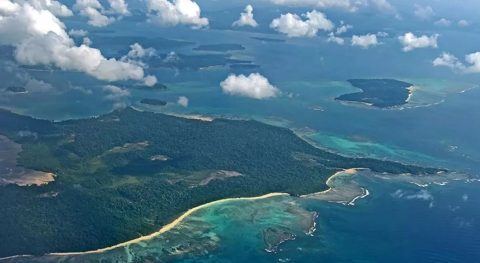ओल चिकी लिपि के सौ वर्ष सन्दर्भ: भारत की राष्ट्रपति ने नई दिल्ली में संस्कृति मन्त्रालय द्वारा आयोजित एक कार्यक्रम में ओल चिकी लिपि के शताब्दी समारोह का उद्घाटन किया,
100 years of Ol Chiki Script Context: The President of India inaugurated the Centenary Celebration of the Ol Chiki script at an event organised by the Ministry of Culture in
संबंधित पाठ्यक्रम सामान्य अध्ययन-2: सरकारी नीतियाँ और विभिन्न क्षेत्रों में विकास के लिए हस्तक्षेप, उनके अभिकल्पन और कार्यान्वयन के से संबंधित विषय। सामान्य अध्ययन -3: संरक्षण, पर्यावरण प्रदूषण और क्षरण,
SYLLABUS GS-2: Government Policies and Interventions for Development in various sectors and Issues arising out of their Design and Implementation. GS-3: Conservation, environmental pollution and degradation, environmental impact assessment. Context:
SYLLABUS GS-2: Issues relating to the development and management of Social Sector/Services relating to Health, Education, Human Resources. Important International institutions, agencies, and fora- their structure and mandate. GS-3: Science and Technology-
संबंधित पाठ्यक्रम सामान्य अध्ययन-2: शिक्षा, स्वास्थ्य, मानव संसाधनों से संबंधित सामाजिक क्षेत्र/सेवाओं के विकास और प्रबंधन से संबंधित विषय| महत्वपूर्ण अंतर्राष्ट्रीय संस्थान, संस्थाएँ एवं मंच-उनकी संरचना, अधिदेश। सामान्य अध्ययन -3: विज्ञान और
संबंधित पाठ्यक्रम सामान्य अध्ययन-1: शहरीकरण, उनकी समस्याएँ और उनके रक्षोपाय। संदर्भ: हाल ही में, केंद्रीय मंत्रिमंडल ने बाजार-आधारित शहरी रूपांतरण को गति देने के लिए ₹1 लाख करोड़ की कुल
SYLLABUS GS-1: Urbanization, their problems and their remedies. Context: Recently, the Union Cabinet approved the launch of the Urban Challenge Fund (UCF) with a total Central Assistance (CA) of Rs.
SYLLABUS GS-3: Conservation, environmental pollution and degradation, environmental impact assessment . Context: A six-member special bench of the National Green Tribunal (NGT) upheld the Environmental Clearance (EC) granted to the
संबंधित पाठ्यक्रम सामान्य अध्ययन-3: संरक्षण, पर्यावरण प्रदूषण और क्षरण, पर्यावरण प्रभाव आकलन। संदर्भ: राष्ट्रीय हरित अधिकरण (NGT) की एक छह सदस्यीय विशेष पीठ ने ग्रेट निकोबार द्वीप मेगा इंफ्रास्ट्रक्चर परियोजना






